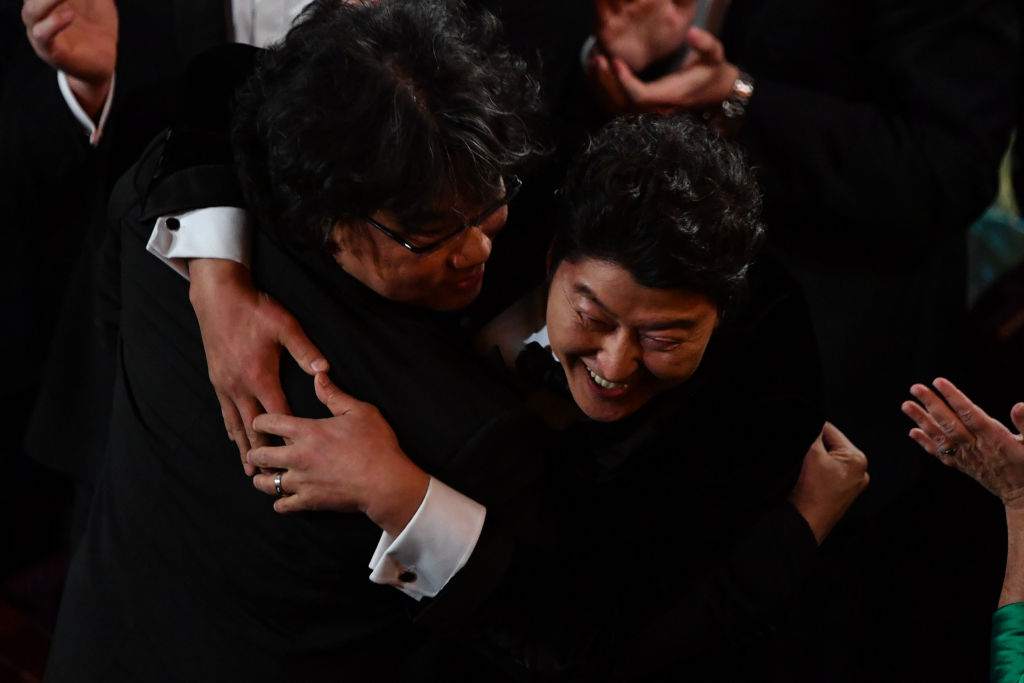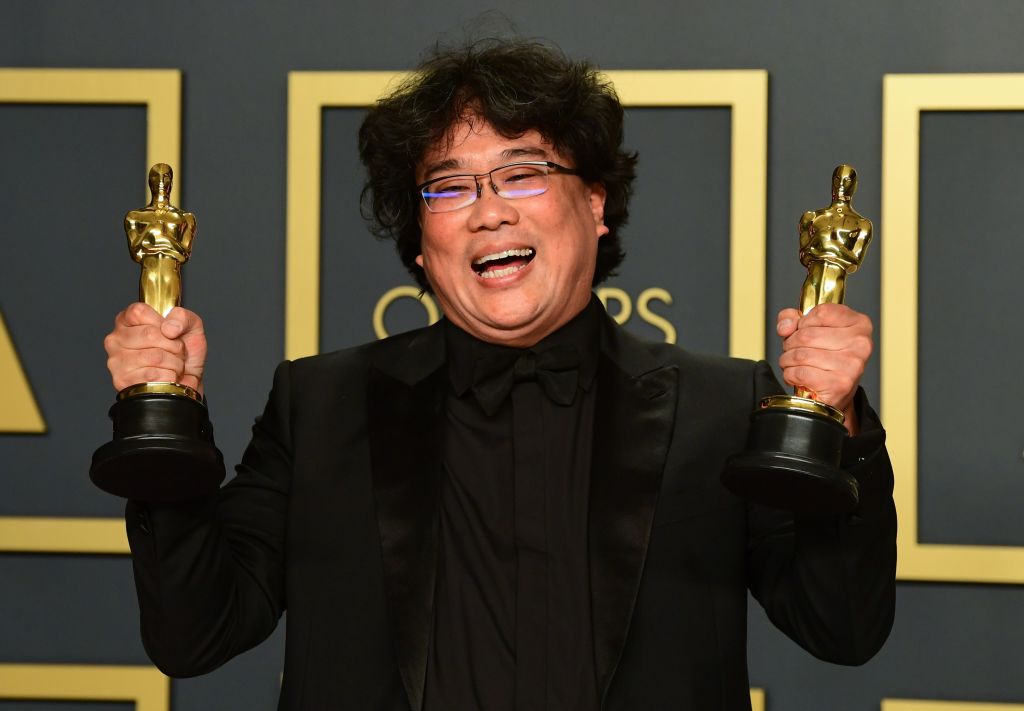‘Parasite’: New York Times Writer Argues This 2019 Film Would Have Better Represented Asian-Americans at the Oscars Than ‘Parasite’ Did
At the most recent Oscars, four Academy Awards went to the South Korean Parasite. Directed by Bong Joon-ho, Parasite is now the first South Korean film every award it did, ever. (A South Korean film had never, before this year, even gotten a nomination.) However, a writer in the New York Times recently argued that another 2019 film made by an Asian director was snubbed by the Oscars–and it’s one that better represents Asian-Americans.
What ‘Parasite’ cleaning up at the Oscars means

In an opinion piece titled “Parasite Won, but Asian-Americans Are Still Losing,” in the New York Times, writer Watler Chaw makes the argument that reaction to Parasite from the Asian-American community was a bit overblown. While he understood the celebration, Chaw thought a lot of the reaction was misguided.
“The victory of Parasite is a stunning moment that may not also be a watershed moment,” Chaw penned.
While on the one hand, “it’s certainly cause for celebration that an organization with notoriously questionable taste seems to have gotten it right this year.” It’s also “unquestionably huge for the South Korean film industry.”
But Chaw mainly believed that Parasite‘s Academy award victories as reparation for years past. The Oscars have, for decades, not acknowledged South Korea whatsoever.
“This is merely Hollywood recognizing, very belatedly, South Korea’s amazing film industry — which has been making superlative films for decades,” Chaw wrote. He said no one, on either end of the political spectrum, was reacting in a way that made sense.
‘Parasite’, the Academy Awards, and politics
“For the left,” Chaw continued in the NYT, “the victory of Parasite represents a validation of diversity initiatives undertaken by the Academy of Motion Picture Arts and Sciences in recent years.” He also references “prominent Asian-American film critic Justin Chang of The Los Angeles Times.” Chang wrote that Parasite‘s success was: “a sign, perhaps, that the academy’s efforts to diversify its ranks and become a truly global institution.”

“The honors for Parasite will satisfy some of the hopes and stoke some of the fears of both sides of the social divide,” Chaw wrote. The liberals that see the film as a topical work of genius, a stake in the heart of both capitalism and wealth inequality, Chaw argues, is a “valid” interpretation. He says it even is bleeding into our presidential politics.
Chaw says Parasite was topical in that way for many American moviegoers:
In a way few films ever have, Parasite captures the spirit of its time by nailing the dissatisfaction with the ruling elite that is driving the Bernie Sanders and Elizabeth Warren campaigns and, paradoxically, carried Donald Trump to office in 2016.
Despite ‘Parasite’, Asian-American representation still suffers, Chaw writes
However, Chaw thought the “euphoric reaction from many Asian-Americans,” was a bit much. Because, as he argued, “the Parasite victory has nothing to do with Asian-American representation.”
And, he continued, the belief on the right that “the film’s awards were a craven effort by the academy’s voters to … atone for this year’s repeat of a near-#OscarsSoWhite repeat probably holds some kernel of truth as well.”
Chaw argues that ‘The Farewell’ was snubbed by the Oscars

But, Chaw writes: caught between both sides of the argument are actual Asian-Americans. He claims that overall, Asian-Americans identified with and therefore were rooting more for Lulu Wang’s The Farewell, rather than Parasite, in this year’s awards circuit. The Farewell, which stars Awkwafina, is about “a young Asian-American woman who at a time of personal crisis is confronted with the widening cultural gulf between herself and her parents and grandmother.”
While The Farewell found “popular success and recognition at the Golden Globes and the Film Independent Spirit Awards,” Chaw acknowledged, it “garnered no Oscar nominations.” There’s an extra layer to The Farewell, too: Wang is an Asian woman.

“I find its exclusion a better indicator of how not just Asian-Americans but also female directors are still seen in Hollywood,” Chaw wrote.
In general, Chaw says he’s “hesitant to give too much credit to the academy for its sudden interest in ‘inclusion.’”
We would have liked to see The Farewell get some Oscar nods, as well. However, Parasite continues to be a timely, engaging, funny, horrifying, beautifully-told and -acted story that is intriguing viewers around the world. We think the Academy got it right this year–at the very least just to honor South Korean film.


